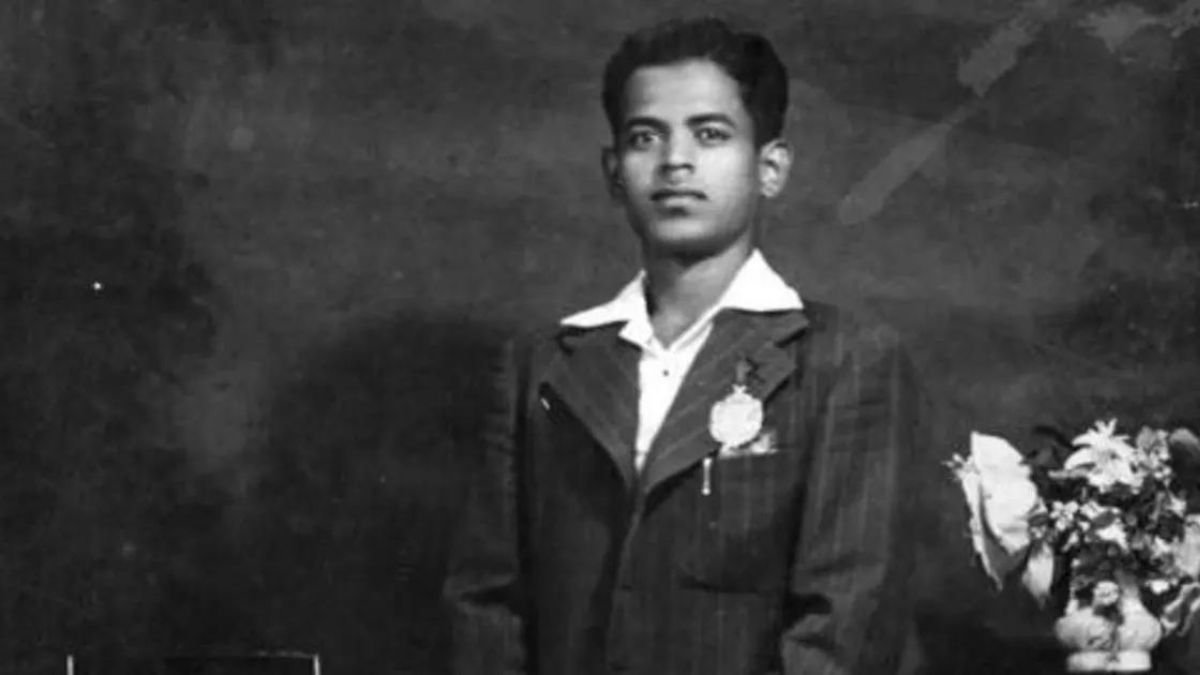Khashaba Dadasaheb Anniversary: Khashaba Dadasaheb Jadhav, the first individual athlete to win an Olympic medal for independent India at the 1952 Summer Olympics in Helsinki, was born on January 15; This year is his 97th birthday. The wrestler, affectionately known as “Pocket Dynamo,” is remembered in the Google Doodle. The doodle includes a sketch of him preparing to attack his opponent.
from today #GoogleDoodle celebrates Khashaba Dadasaheb Jadhav and here’s why you should remember him ⬇️
🥉 He was India’s first Olympic medalist in an individual sport (wrestling). 💪 He earned the nickname Pocket Dynamo for mastering the dhak technique.
के.डी.जाधव, तुम्हाला आमचा सलाम 🫡 pic.twitter.com/mkSlyIu3Mh
– Google India (@GoogleIndia)
January 15, 2023
Who was Khashaba Dadasaheb Jadhav?
An Indian athlete named Khashaba Dadasaheb Jadhav. His most notable achievement was winning a bronze medal in wrestling at the Helsinki Summer Olympics in 1952. He was the first athlete from an independent India to take home an Olympic medal. Khashaba was the first individual athlete from independent India to take home an Olympic medal after Norman Pritchard, who won two silver medals in the sport in 1900 while competing for colonial India. Before Khashaba, India would only take home gold in the team sport of field hockey. He is the only Indian medalist who has never won a Padma award.
Khashaba distinguished himself from other fighters of his time by being incredibly quick on his feet. Rees Gardner, an English coach, noticed this quality in him and worked with him before the 1948 Olympics. He was originally from the nearby Goleshwar village of Karad.
Stan Lee Biography
Who trained Khashaba Dadasaheb?
Khashaba was the youngest of five children of renowned wrestler Dadasaheb Jadhav and was born in Goleshwar village in Karad taluka of Satara district in the state of Maharashtra.
 Source: Google
Source: Google
Khashaba was introduced to wrestling by his father Dadasaheb when he was five years old. In college, Baburao Balawde and Belapuri Guruji were his wrestling coaches. That didn’t stop her from getting good grades thanks to his success in wrestling. He participated in the movement to leave India. He decided to hoist the tricolor flag during the Olympic Games on August 15, 1947, which was Independence Day.
About KD Jadhav’s wrestling journey
He began fighting in 1948, and his first big break came at the 1948 London Olympics, where he placed sixth in the flyweight division. Until 1948, he was the first Indian to achieve such a high position in the individual category. Jadhav’s sixth place finish was no small achievement at that time, even though he was new to wrestling and international wrestling rules.
Jadhav worked even harder over the next four years to prepare for the Helsinki Olympics, where he competed in the bantamweight (57kg) category, which featured wrestlers from 24 different nations. Before losing his semi-final, he defeated wrestlers from Mexico, Germany and Canada. However, he recovered to win the bronze medal, becoming the first wrestler from independent India to win an individual Olympic medal.
Rohit Sharma Biography
London Olympic Games 1948
Jadhav’s first experience on a big stage came at the 1948 London Olympics; The Maharaja of Kolhapur paid for his trip. Rees Gardner, former US lightweight world champion, trained him while in London. Jadhav, who had never fought on the mat before, finished sixth in the flyweight division under Gardner. In the first minutes of the fight, he surprised the crowd by defeating Australian fighter Bert Harris. After defeating Billy Jernigan of the United States, he lost to Mansour Raeisi of Iran and was therefore disqualified from the competition.
Jadhav increased the pace of his training for the Helsinki Olympics over the course of the next four years, moving up in weight and competing in the 125-pound bantamweight division alongside wrestlers from 24 different nations.
1952 Summer Olympics
He was asked to fight Rashid Mammadbeyov of the Soviet Union after the grueling bout. The rules required a minimum 30-minute rest between bouts, but with no Indian officials available to plead the case, an exhausted Jadhav failed to motivate and Mammadbeyov seized the opportunity to advance to the final. He won the bronze medal on July 23, 1952, defeating wrestlers from Canada, Mexico and Germany to become Independent India’s first individual medal winner. Krishnarao Mangave, a wrestler and Khashaba’s teammate, competed at the same Olympics in a different event, but narrowly missed winning the bronze medal by one point.
Jadhav was the star of the Indian delegation that returned home after the Olympics, even though the Indian hockey team won a gold medal at the Helsinki games. A cavalcade of 151 bullock carts and dhols carried the crowd hero through Goleshwar village after they gathered at Karad railway station to welcome him.
Biography of Swami Vivekananda
Awards and honors
- He had the honor of being included in the torch relay at the Delhi Asian Games in 1982.
- In 1992-1993, the Maharashtra government introduced a posthumous Chhatrapati Puraskar.
- In 2000, he was posthumously awarded the Arjuna Award.
- In recognition of his achievement, the newly built wrestling venue for the 2010 Commonwealth Games in Delhi is named after him.
- On his 97th birthday today, January 15, 2023, Google honored Jadhav with a Google Doodle.
In 1955 he became a sub-inspector of the police department, where he excelled in internal competitions and also performed national duties as a sports instructor. He endured years of neglect by the sports federation and had to spend his last years in absolute poverty. He died in a car accident in 1984 and his wife had trouble finding support from anyone.
Check other important days and dates in January 2023
Categories: Optical Illusion
Source: ptivs2.edu.vn
